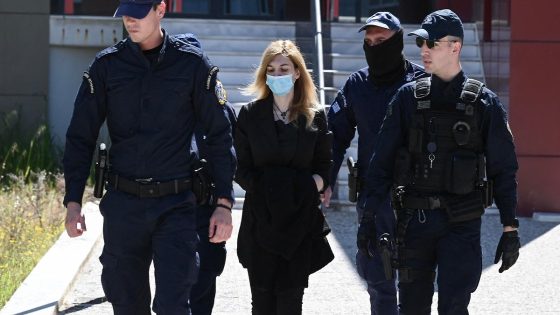A shadow of grief and unresolved questions lingered in the quiet corners of Traverse City, Michigan, where, in a tragic turn of fate, a mother of five was found murdered in the spring of 1989. Linda Marie Meteer, 41, was reported missing on April 20, 1989; a week later, her lifeless body was discovered in Hoosier Valley, a remote area known for its natural beauty but now shrouded in sorrow. Authorities ruled the death a homicide, sending shockwaves through the community and leaving her family and friends grappling with an unending sense of loss.
- Suspect arrested 36 years after homicide.
- Linda Marie Meteer's body found in 1989.
- Investigative task force never made charges.
- Cold case program assisted with investigation.
- DNA evidence hoped to solve the case.
- Suspect charged with open murder in Michigan.
For decades, Meteer’s case lay dormant, held back by a web of unanswered questions and a lack of solid leads. Despite exhaustive investigations by a specialized task force, no suspects had emerged, and her case became one of many cold cases that haunt law enforcement. But as time meandered on, new hope flickered to life.
In 2024, a pivotal meeting took place that changed the course of the investigation. Officials from the Grand Traverse County Prosecutor’s Office, the Michigan State Police Crime Lab, and the Western Michigan University Cold Case Program convened to strategize how to breathe new life into a case that had long since grown cold. The collaborative effort aimed to utilize fresh investigative techniques, especially advancements in DNA analysis, hoping that science might yield the evidence that had eluded them for years.
“Cold cases like Linda’s remind us of the families still seeking justice,” a spokesperson for the sheriff’s office noted in a recent statement. “With advancements in technology, we believe we can provide answers that have been so long coming.”
Among those working on Meteer’s case were dedicated students from the university’s cold case program who meticulously digitized her case file, creating detailed timelines and searchable documents. They hoped that by sifting through piles of evidence, they could uncover clues that would lead to a breakthrough. The program was not just an academic exercise; it was part of a community effort to restore dignity to victims who had been forgotten.
On February 18, 2025, this collaborative effort bore fruit when deputies arrested a 63-year-old man from Leelanau County, which borders Grand Traverse County. While police have remained tight-lipped about the suspect’s identity and the specifics that led to the arrest, they did announce that charges of open murder had been filed against him. This legal maneuver allows prosecutors to determine whether to pursue first- or second-degree murder charges, depending on the evidence presented during the trial.
As investigations continue, the sheriff’s office has acknowledged the families impacted by this case are still experiencing considerable emotional turmoil, stating, “We recognize that this news stirs up old feelings of grief and frustration. Our commitment is to deliver justice for Linda’s family and all the families of victims who have waited too long for answers.”
Meteer’s story is more than just a crime; it represents a community’s unyielding desire for justice, the pain of a family left behind, and the relentless pursuit of truth by law enforcement. The investigation is ongoing, and authorities have promised to keep the public informed of any further developments as they seek to untangle the threads from years gone by.
As Traverse City watches and waits for a resolution in a case that has haunted them for more than three decades, it serves as a reminder of the fragility of life and the importance of community connections in the quest for justice. With the promise of new methods and a renewed fervor, hope persists that this long-standing mystery may finally reach its resolution, allowing the memory of Linda Marie Meteer to rest in peace.

































